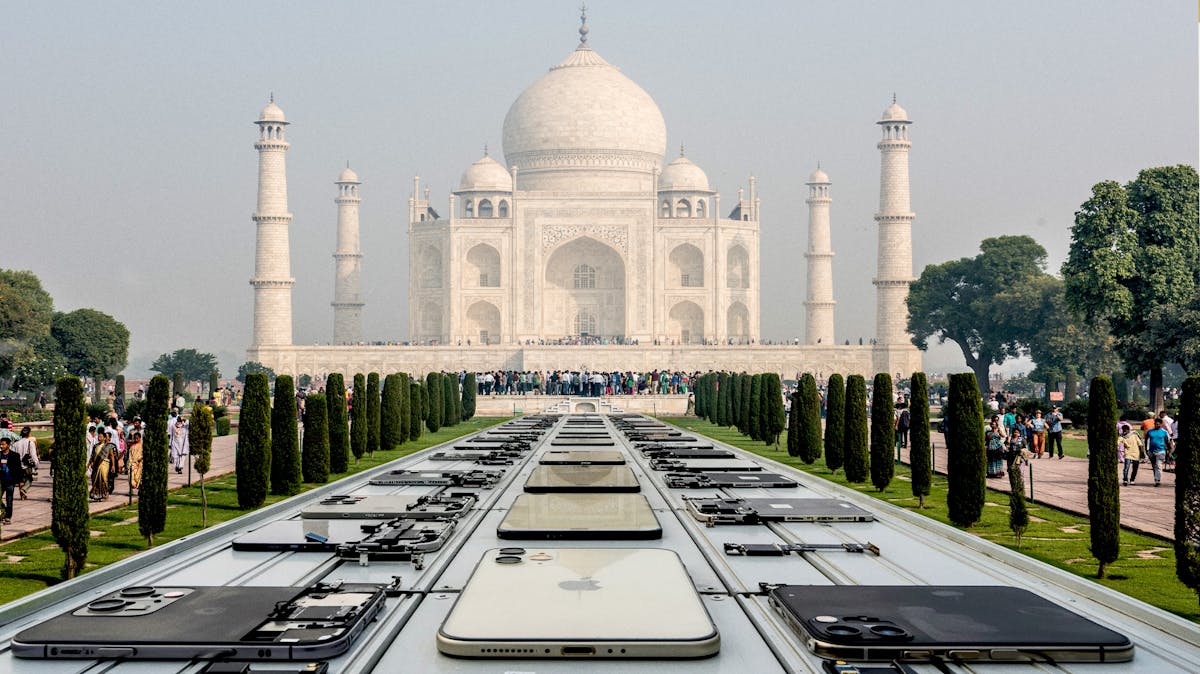Roadblocks in Apple's India Expansion: How China's Shadow Looms Large
Manufacturing
2025-04-24 13:00:27Content

Apple's strategic shift to diversify its manufacturing base is encountering significant challenges as the company seeks to reduce its reliance on China for iPhone production. Currently, approximately 80% of Apple's smartphones are manufactured in China, but the tech giant has been actively pursuing an ambitious plan to expand its production footprint in India.
The company's efforts to establish a more robust manufacturing presence in India are being complicated by geopolitical tensions between China and India. These diplomatic and economic frictions are creating obstacles for Apple's carefully planned manufacturing diversification strategy.
While Apple has been making steady progress in developing its Indian manufacturing ecosystem, the complex relationship between China and India continues to pose potential roadblocks. The tech giant remains committed to its goal of reducing dependency on a single manufacturing location, recognizing the strategic importance of having a more distributed production network.
The ongoing challenges highlight the intricate nature of global supply chain management and the delicate balance multinational corporations must navigate in an increasingly complex geopolitical landscape. Apple's determination to expand its manufacturing capabilities in India represents a significant long-term investment in geographic diversification and risk mitigation.
Apple's Global Manufacturing Shift: Navigating Geopolitical Challenges in the Smartphone Ecosystem
In the rapidly evolving landscape of global technology manufacturing, Apple finds itself at a critical crossroads, strategically maneuvering to diversify its production capabilities and reduce geographical dependencies that have long defined its supply chain infrastructure.Breaking Free from Manufacturing Monopolies: A Strategic Technological Transformation
The Geopolitical Manufacturing Chessboard
Apple's ambitious initiative to redistribute its manufacturing footprint represents a sophisticated response to complex geopolitical tensions. The technology giant has been meticulously developing strategies to decentralize its production ecosystem, with India emerging as a promising alternative to China's dominant manufacturing landscape. This strategic pivot is not merely a logistical adjustment but a nuanced geopolitical chess move that addresses multiple interconnected challenges. The company's comprehensive approach involves creating robust manufacturing infrastructure in India, leveraging local talent, navigating regulatory frameworks, and establishing sophisticated supply chain networks. By investing heavily in Indian manufacturing facilities, Apple aims to mitigate risks associated with over-reliance on a single geographical region while simultaneously tapping into an emerging market with significant growth potential.Technological Sovereignty and Economic Resilience
The transition from China-centric manufacturing to a more diversified global approach underscores Apple's commitment to technological sovereignty. With approximately 80% of its smartphones currently produced in China, the company recognizes the inherent vulnerabilities in such concentrated production models. The geopolitical tensions between China and India further complicate this landscape, creating additional impetus for strategic recalibration. Apple's investment in Indian manufacturing represents more than an economic strategy; it's a sophisticated response to evolving global dynamics. By establishing robust manufacturing capabilities in India, the company can potentially circumvent trade restrictions, reduce transportation costs, and create more flexible production ecosystems that can rapidly adapt to changing global conditions.Navigating Regulatory and Infrastructural Challenges
The journey towards manufacturing diversification is fraught with complex challenges. India's regulatory environment, infrastructure limitations, and skilled labor availability present significant hurdles that Apple must strategically navigate. The company's approach involves comprehensive investments in local infrastructure, workforce training programs, and collaborative partnerships with Indian government entities. These efforts extend beyond mere production capabilities, encompassing a holistic strategy of technological transfer, skill development, and economic collaboration. By creating meaningful economic opportunities and demonstrating long-term commitment, Apple positions itself as a transformative player in India's technological ecosystem.Economic and Technological Implications
The broader implications of Apple's manufacturing strategy transcend immediate production considerations. This approach represents a potential blueprint for multinational technology corporations seeking to create more resilient, geographically diversified manufacturing networks. The strategy challenges traditional assumptions about global production, emphasizing adaptability, risk mitigation, and strategic long-term planning. By investing in emerging markets like India, Apple not only secures its manufacturing capabilities but also contributes to technological ecosystem development. The ripple effects of such strategies include job creation, skill development, and potential technological innovation emerging from these collaborative environments.Future Outlook and Strategic Considerations
As geopolitical landscapes continue to evolve, Apple's manufacturing strategy serves as a dynamic model of corporate adaptability. The company's ability to anticipate, strategize, and implement complex global manufacturing transformations will likely become increasingly critical in an interconnected yet politically fragmented world. The ongoing efforts to establish a more distributed manufacturing presence represent a sophisticated approach to technological and economic resilience. By embracing complexity and proactively addressing potential challenges, Apple demonstrates the potential for strategic corporate navigation in an increasingly unpredictable global environment.RELATED NEWS
Manufacturing

Engines of Heritage: Oxford Revs Up to Commemorate Manufacturing Legacy on Drive It Day
2025-04-26 04:00:00
Manufacturing

Manufacturing's Resurgence: How American Industry Is Reclaiming Its Global Edge
2025-04-08 12:15:12
Manufacturing

3D Printing Revolution: How Healthcare Innovators Are Reshaping Medical Manufacturing by 2032
2025-04-21 06:46:29





